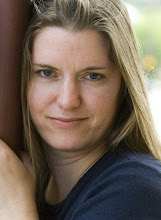New Orleans is a city full of contradictions, a place out of context with the rest of America. It defies understanding, explanation, and most especially, classification. It’s a quality the residents hold onto, this testament of uniqueness, even as the city has teetered time and again on the brink of destruction.
I’ve lived near New Orleans for most of my life. I’m a frequent visitor there, and, like everyone else who comes, I’ve fallen in love with its decadent grandness, its welcoming, leisurely way of life. All manner of humanity calls New Orleans home, and the city embraces them all. It’s a unique place, out of step with the rest of America, and that is exactly why it is so important to save. This has never been truer than now, as the great lady teeters on her knees, still struggling, three years later, to rise from the devastation of Katrina.
Dan Baum, on assignment from The New Yorker after the storm, quickly learned all of these things. Along with his wife Margaret, he eventually moved to New Orleans in order to write a book, one which, using the timeframe between Betsy in 1965 and Katrina in 2005, captures perfectly what it means to love this city.
Baum chose nine people he got to know after the storm, conducting hundreds of hours of interviews, writing the story of the city through their eyes. They are from vastly different ends of the socio-political spectrum, ranging from the widow of a revered Mardi Gras Indian chief to the long-time coroner of Orleans parish, from a transsexual bar owner to a former king of Rex and pillar of the Uptown community. Their stories are unique, yet a common thread runs through them all – the deep, abiding love of this place, of the home New Orleans offers to each.
The author captures that love without being preachy or overly sentimental. New Orleans is far from a fairy-tale land of mutual respect, understanding, and tolerance. Poverty, desperation, and crime are huge, unending problems, and Baum acknowledges this by telling stories that are candid, real, and fraught with generations of loss and disappointment. They are also, however, stories of hope, of people who have risen, time and again, despite adversity after adversity.
Many people in the rest of the United States have questioned why we should rebuild such a place, crippled as it is by poverty and corruption. It takes spending time in New Orleans to learn its value, I suppose, to experience the unique magic that makes this city special. If you can’t visit, however, read this book. Dan Baum has clearly seen and understands. Five Stars.







